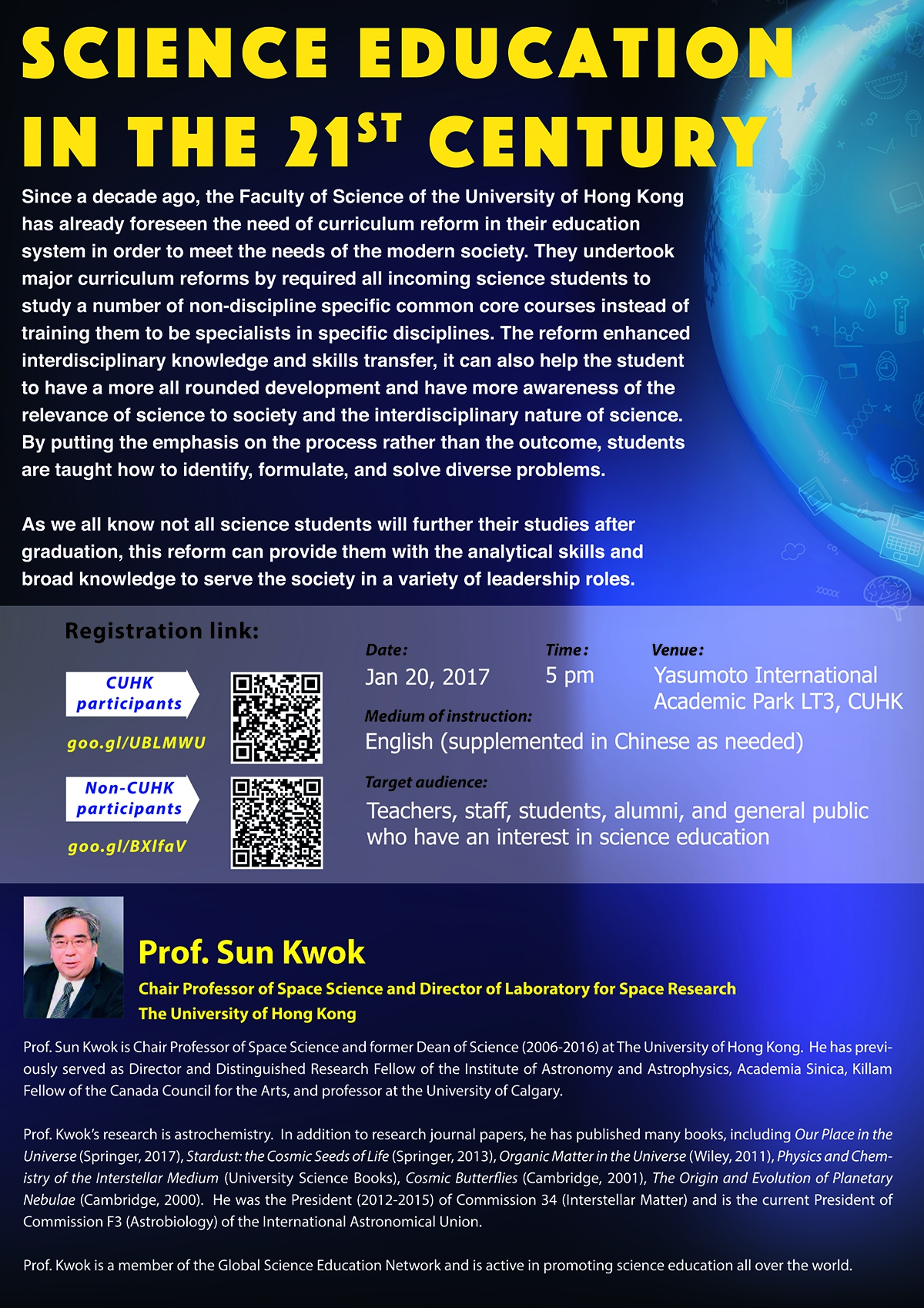Events
Science Education in the 21st Century
20 Jan 2017
5pm-6pm
LT3, Yasumoto International Academic Park, CUHK
Professor Sun Kwok, Chair Professor of Space Science and Director of Laboratory for Space Research,The University of Hong Kong
Prof. Sun Kwok is Chair Professor of Space Science and former Dean of Science (2006-2016) at The University of Hong Kong. He has previously served as Director and Distinguished Research Fellow of the Institute of Astronomy and Astrophysics, Academia Sinica, Killam Fellow of the Canada Council for the Arts, and professor at the University of Calgary. Prof. Kwok’s research is astrochemistry. In addition to research journal papers, he has published many books, including Our Place in the Universe (Springer, 2017), Stardust: the Cosmic Seeds of Life (Springer, 2013), Organic Matter in the Universe (Wiley, 2011), Physics and Chemistry of the Interstellar Medium (University Science Books), Cosmic Butterflies (Cambridge, 2001), The Origin and Evolution of Planetary Nebulae (Cambridge, 2000). He was the President (2012-2015) of Commission 34 (Interstellar Matter) and is the current President of Commission F3 (Astrobiology) of the International Astronomical Union. Prof. Kwok is a member of the Global Science Education Network and is active in promoting science education all over the world.
Free Registration:
CUHK staff and students : https://webapp.itsc.cuhk.edu.hk/ras/restricted/event?id=4241
Others : https://docs.google.com/forms/d/e/1FAIpQLSd91Dm4MJUztpYgcvLIr1Mwo38M1VaCz_i7Q0TlgbzYRKlxQA/viewform
CLEAR- Centre for Learning Enhancement And Research [clear@cuhk.edu.hk]
CPSE- Centre for Promoting Science Education [cpse@cuhk.edu.hk]
Please refer to the website for detailed information: https://www.cuhk.edu.hk/clear/new/1617-s1-10.htm
Since a decade ago, the Faculty of Science of the University of Hong Kong has already foreseen the need of curriculum reform in their education system in order to meet the needs of the modern society. They undertook major curriculum reforms by required all incoming science students to study a number of non-discipline specific common core courses instead of training them to be specialists in specific disciplines. The reform enhanced interdisciplinary knowledge and skills transfer, it can also help the student to have a more all rounded development and have more awareness of the relevance of science to society and the interdisciplinary nature of science. By putting the emphasis on the process rather than the outcome, students are taught how to identify, formulate, and solve diverse problems. As we all know not all science students will further their studies after graduation, this reform can provide them with the analytical skills and broad knowledge to serve the society in a variety of leadership roles.


